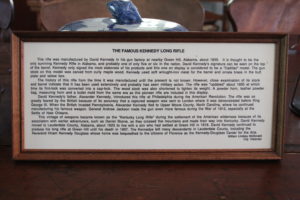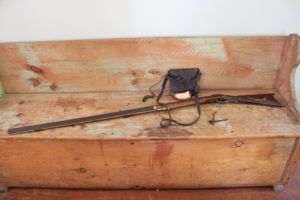In the early 1850s, there were 15 saw mills and 25 grist mills in Lauderdale County. In addition there were immense tan yards, wagon shops, blacksmith shops which were producing war materials.


Between 1850 and 1860 plantations in Lauderdale County included seven kinds of livestock according to the census. These included horses, asses and mules, milch cows, working oxen, other cattle, sheep, and swine. In the 1859-60 crop year, the average price for cotton was around 11 cents per pound.
There were a few wagon and carriages shops in the area prior to the Civil War, but by the end of the century the Florence Wagon Works had become one of the largest industries, not only in Florence, but one of the largest wood-working enterprises in the South. The manufacturing facility covered many acres in East Florence near the Tennessee River. The factory employed a work force of two hundred fifty, plus those who cut and hauled timber to the factory. At the height of production ten thousand to fifteen thousand “Light Running Florence” wagons were produced each year.


While a few foundries and machine shops were in existence before the Civil War. The industry grew in importance to Florence. The Peter A. Andrews foundry made agricultural machinery, implements and all kinds of castings. The Wright and Rice foundry produced rotary saws and a variety of castings. The Foundry, originally known as the Florence Stove and Manufacturing Company moved to Florence in the 1880s, manufacturing stoves, heaters, wash pots, skillets, “sad irons” for pressing clothes, and “dog irons” for fireplaces.
Vast tracts of timber, both virgin and second growth, and great variety of trees made the timber industry, which produced fuel. Charcoal, tar, wood alcohol and other timber based products a viable part of the economy of the Florence area. The Alabama Stave Company near Florence produced six million barrel staves a year, employing eighty people in the plant and another 200 laborers in the forests to cut, prepare, and ship wood to the mill. The Nichols Shingle Mills had a daily output of 40,000 shingles a day.


